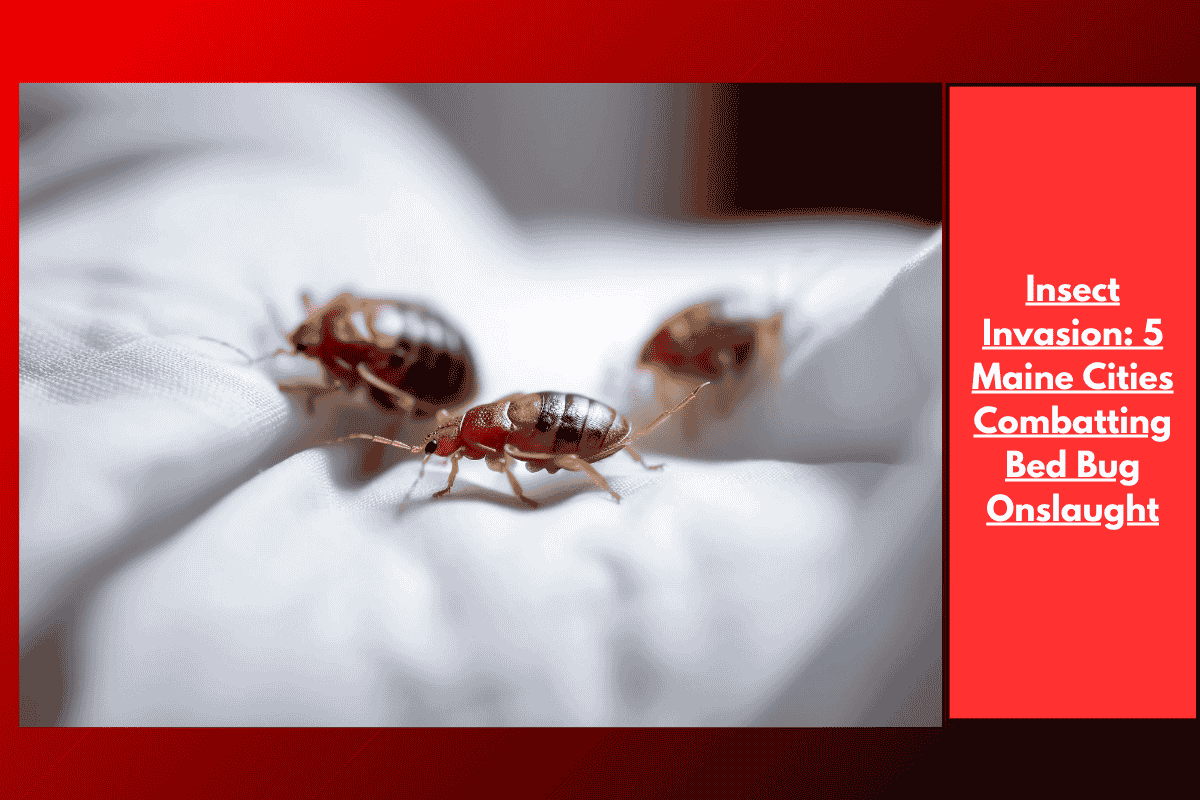In recent years, Maine cities have been facing an alarming rise in bed bug infestations, posing challenges for both residents and local authorities. These tiny pests, which feed on human blood, have become a growing problem in various parts of the state. Bed bugs are not just a nuisance; they can also affect public health and well-being. In this article, we will explore how five Maine cities are dealing with the bed bug invasion and what steps they are taking to combat the problem.
The Growing Bed Bug Problem in Maine
Maine, like many other states, has seen a sharp increase in bed bug infestations in recent years. These pests are most commonly found in homes, hotels, apartment buildings, and other places where people gather. Bed bugs are known for their ability to spread quickly and for being difficult to eradicate, making them a persistent problem for both homeowners and public health officials.
While bed bugs don’t carry diseases, their bites can cause itching, irritation, and, in some cases, allergic reactions. The emotional stress and sleepless nights caused by bed bug infestations have led to increased concerns across Maine, prompting local governments and communities to take action.
1. Portland: The City Taking Proactive Measures
Portland, Maine’s largest city, has seen a significant rise in bed bug reports in recent years. In response, the city has introduced several proactive measures to tackle the problem. These include public education campaigns, where residents are educated on how to identify bed bugs and prevent infestations.
Portland’s health department has also been working with local pest control companies to create a set of guidelines for both homeowners and businesses. The guidelines cover how to properly inspect and treat for bed bugs, as well as the best practices for preventing their spread. Additionally, the city has increased efforts to inspect and treat public housing, hotels, and shelters to prevent large-scale infestations.
2. Bangor: Stronger Enforcement of Building Codes
Bangor, another major city in Maine, has also faced a rise in bed bug infestations, particularly in its older buildings. To combat this issue, the city has turned to building codes and enforcement as part of its strategy. Local authorities have stepped up inspections of rental properties and hotels, making sure that landlords are adhering to regulations regarding pest control.
Bangor’s efforts also include more public outreach, encouraging residents to be proactive about pest control in their homes. The city’s health department works closely with local pest management professionals to ensure that infestations are quickly addressed and that the proper steps are taken to prevent further spread.
3. Lewiston: Community Support and Resources
Lewiston has also been dealing with an increasing number of bed bug cases, and the local government has recognized the need for community support in addressing the problem. The city has set up resources for residents, including information on how to identify and treat bed bugs. Lewiston has collaborated with local nonprofits and community groups to provide support for individuals who may struggle with the costs of treatment.
In addition to education and support, Lewiston has also started offering financial assistance for low-income families to help with the costs of pest control. The city has made it clear that it’s committed to helping residents protect their homes and public spaces from bed bugs.
4. Augusta: Partnering with Public Health Agencies
Augusta, the capital of Maine, has made significant strides in tackling its bed bug problem by partnering with public health agencies and pest control experts. The city works alongside the Maine Center for Disease Control and Prevention (CDC) to create a comprehensive plan for bed bug eradication.
Augusta’s plan includes educating the public, particularly tenants and landlords, on how to manage and prevent infestations. The city also collaborates with local pest control companies to ensure that treatments are done in a timely and effective manner. Additionally, Augusta has set up a hotline for residents to call for advice or assistance when dealing with bed bugs.
5. South Portland: Focus on Education and Early Detection
South Portland, a neighboring city to Portland, has also been grappling with a rise in bed bug infestations. One of the key strategies in South Portland’s approach is focusing on education and early detection. The city provides workshops and seminars for residents, landlords, and business owners on how to spot bed bugs early and how to respond effectively if an infestation is discovered.
South Portland has worked with local schools, hotels, and apartment complexes to implement early detection practices, such as regular inspections and the use of bed bug-sniffing dogs. The city also has a dedicated team of pest management professionals who are available to help residents with treatment and prevention strategies.
The rise of bed bug infestations in Maine is a serious issue that has affected cities across the state. However, five cities—Portland, Bangor, Lewiston, Augusta, and South Portland—are taking proactive steps to tackle this problem head-on. Through education, public outreach, stronger enforcement of building codes, and partnerships with pest control experts, these cities are working hard to keep their communities safe from the health and emotional toll of bed bugs. While the fight against these pests is ongoing, the commitment and efforts of Maine’s cities are crucial in ensuring that residents can continue to live in bed bug-free environments.
SOURCES
[1] https://collincountymagazine.com/2025/07/07/insect-invasion-5-maine-cities-combatting-bed-bug-onslaught/
[2] https://mywaynecountynow.com/insect-invasion-5-maine-cities-combatting-bed-bug-onslaught/
[3] https://92moose.fm/maine-cities-worst-bed-bugs/
[4] https://www.terminix.com/blog/whats-buzzing/top-bed-bug-cities/
[5] https://www.orkin.com/press-room/worst-cities-for-bed-bugs-annual-rankings














